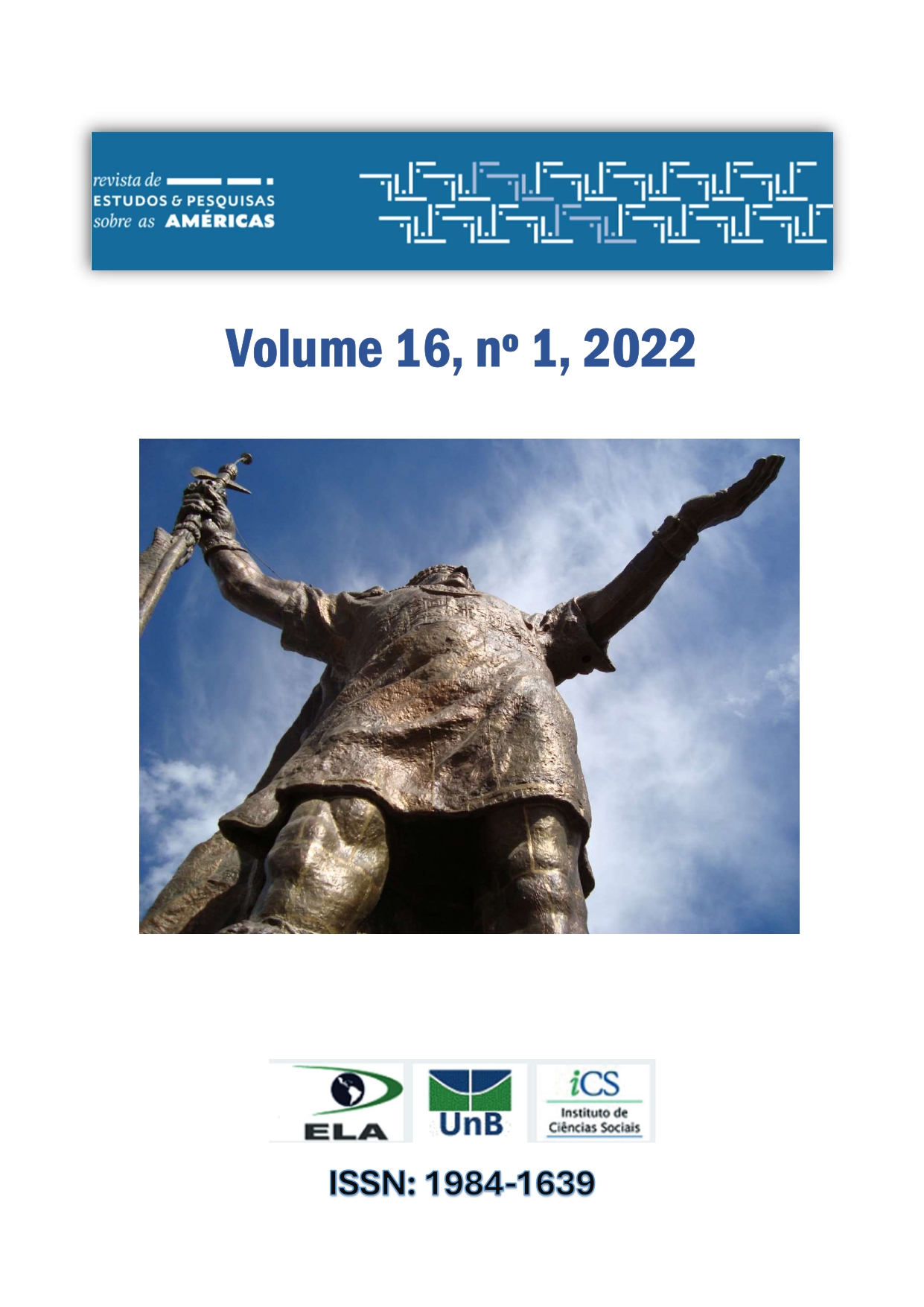The Post-Pandemic World
the new normal of the neoliberalism and the role of the State
DOI:
https://doi.org/10.21057/10.21057/repamv16n1.2022.45055Keywords:
Pandemic - Public health - Economic crisis – StateAbstract
Although the pandemic has lost momentum in practically all countries and lethality has been greatly reduced due to the advent of vaccines, its effects on social life tend to be profound and extensive. The most important of all is the role of the State in the health area and its ability to carry out counter-cyclical actions to mitigate the economic consequences of the spread of the virus. The liberal consensus of the supposed supremacy of the market over public power fell apart during 2020-21, when several governments made huge expenditures that prevented the crisis from running amok. Even so, social relations, work organization and urban space, in particular, can also undergo qualitative changes. The present article seeks to discuss these and other questions about a possible "new normal" at the global level.
References
BARRO, R, URSUA, J. F. e WENG, J., “The Coronavirus and the Great Influenza Pandemic: Lessons from the ‘Spanish Flu’ for the Coronavirus’s Potential Effects on Mortality and Economic Activity”. National Bureau of Economic Research, Working paper 26866, 27 pp. 2020. Disponível em https://www.nber.org/papers/w26866. Acesso em 13 ago. 2022.
BBC NEWS BRASIL (Cecília Barría), “Coronavírus: o que as grandes economias do mundo estão fazendo para evitar falências e a falta de dinheiro”, 21 mar. 2020. Disponível em https://www.bbc.com/portuguese/internacional-51983863. Acesso em: 06 ago. 2022.
CARDOSO, Fernando Henrique, “A política externa do Brasil no início de um novo século: uma mensagem do Presidente da República”, in Revista Brasileira de Política Internacional, vol.44, Jan/jun. 2001. Disponível em http://www.scielo.br/scielo.php?script=sci_arttext&pid=S0034-73292001000100001&lng=en&nrm=iso. Acesso em: 01 ago. 2022.
CZERESNIA, Dina e RIBEIRO, Adriana, “O conceito de espaço em epidemiologia: uma interpretação histórica e epistemológica”, Cadernos de Saúde Pública, vol.16 n.3. Rio de Janeiro Jul./Set. 2000. Disponível em https://www.scielo.br/scielo.php?script=sci_arttext&pid=S0102-311X2000000300002.Acesso em: 28 jul. 2020.
EL-ERIAM, Mohamed, “A new normal”, Secular Outlook, maio 2009. Disponível em https://seekingalpha.com/instablog/296964-living4dividends/4439-secular-outlookmohamed-el-erian-may-2009-a-new-normal. Acesso em: 16 ago. 2022.
FOLHA DE S. PAULO, "FHC vê novo Renascimento e evita falar em desemprego", Disponível em https://www1.folha.uol.com.br/fsp/1997/12/18/brasil/3.html. Folha de S. Paulo, 18 dez.1997.
KURZ, Robert, O colapso da modernização. Tradução: Karen Elsabe Barbosa. Rio de Janeiro, Editora Paz e Terra, 1993.
LAMPREIA, Luiz Felipe, "A política externa do governo FHC: continuidade e renovação", in Revista Brasileira de Política Internacional, vol. 41, Jul/dez. 1998. Disponível em http://www.scielo.br/scielo.php?script=sci_arttext&pid=S0034-73291998000200001. Acesso em: 27 jul. 2022.
MARTIN-BARBERO, Jesús, Médios y culturas in Nosty, Bernardo Diaz (org.), Tendencias 07 – Medios de comunicación – El escenario latinoamericano, Ariel. Barcelona, Fundación Telefónica, 2007.
MILANOVIC, Branko, The real pandemic danger is social colapse, Foreign Affairs, 2020. Disponível em (https://www.foreignaffairs.com/articles/2020-03-19/real-pandemic-dangersocial-collapse). Acesso em: 04 ago. 2022.
MILANOVIC, Branko, “China to the rescue?”, Social Europe, 19 mar. 2022. Disponível em https://socialeurope.eu/china-to-the-rescue. Acesso em: 26 ago. 2022.
OIT, ILO Monitor on the world of work, 2022. Disponível em https://www.ilo.org/wcmsp5/groups/public/---dgreports/---dcomm/---
publ/documents/publication/wcms_845642.pdf.
OLIVEIRA, Ricardo Devides, “Assim nasce a geografia da pandemia”, Outras palavras, 29 mai.2020. Disponível em https://outraspalavras.net/descolonizacoes/assim-nasce-a-geografiada-pandemia/ Acesso em: 29 mai. 2022.
OMS - WHO Coronavirus (COVID-19) Dashboard. Disponível em https://covid19.who.int/Acesso em: 12 set. 2022.
POLANYI, Karl, A grande transformação – As origens de nossa época. 2ª. edição. Tradução Fanny Wrobel, Rio de Janeiro, Editora Campus, 2000.
SPINNEY, Laura, Pale rider, the Spanish flu os 1918 and how it changed the world. Nova York. Hachette Book Group, 2017.
TESOURO TRANSPARENTE, Disponível em:https://www.tesourotransparente.gov.br/visualizacao/painel-de-monitoramentos-dosgastos-com-covid-19. 2022.
THE ECONOMIST, “What would Keynes do? The pandemic will leave the rich world deep in debt, and force some hard choices”, Economist, 23 abr. 2020. Disponível em https://www.economist.com/briefing/2020/04/23/the-pandemic-will-leave-the-rich-worlddeep-in-debt-and-force-some-hard-choices.
TUCÍDEDES, História da Guerra do Peloponeso. Tradução Mário da Gama Kury. Brasília, Editora
da UnB, 1987.
Downloads
Published
Issue
Section
License
Copyright (c) 2023 Gilberto Maringoni

This work is licensed under a Creative Commons Attribution-NonCommercial 4.0 International License.
The published material is the property of the Journal, and may be reproduced in whole or in part with indication of the source.
Copyright: Authors will be responsible for obtaining the copyright of the material used. Authors who publish in this journal agree to the following terms:
a)Authors retain the copyright and grant the journal the right of first publication, with the work simultaneously licensed under
the Creative Commons Attribution License which allows the sharing of work with acknowledgment of authorship and initial publication in this journal.
b) Authors are authorized to take additional contracts separately, for non-exclusive distribution of the version of the work published in this journal (eg, publish in institutional repository or as a book chapter), with acknowledgment of authorship and initial publication in this journal.
c) Authors are allowed and encouraged to publish and distribute their work online (eg in institutional repositories or on their personal page) at any point before or during the editorial process, as this can generate productive changes as well as increase the impact and the citation of the published work (See The Effect of Free Access).
















